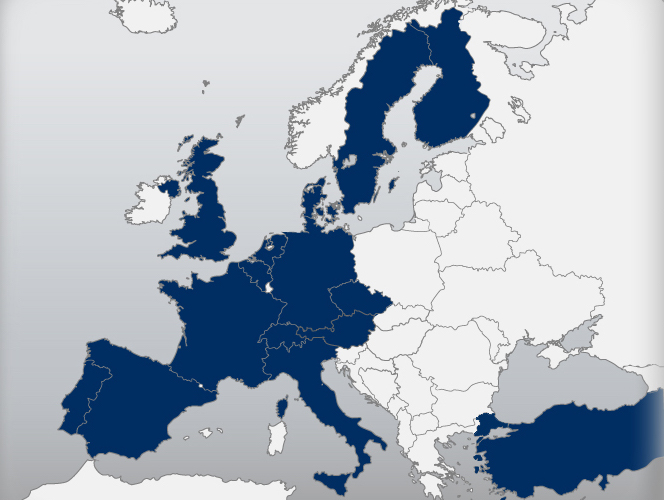CECIMO, the association of machine tool and manufacturing technologies, has encouraged the European Commission (EC) to consider the role “enabling technologies” have to play within its upcoming Sustainable Product Initiative.
Once rolled-out in Q4 2021, the reforms will see the EU update its Ecodesign Directive to demand greater sustainability and reusability from products sold on the common market. For its part, CECIMO has responded to the EC’s proposals by urging it to endorse 3D printing’s material efficiency, localized production and repair capabilities, as a means of helping European firms adopt more circular practises.
“AM makes repairs and remanufacturing easier and more cost-effective,” said CECIMO in response to the EC initiative’s public consultation. “It allows spare parts to be printed on-demand and closer to where they are needed. This helps reduce inventory waste and products’ carbon footprint, and extend the lifetimes of those products requiring spare parts that would otherwise be difficult to obtain.”

The Sustainable Product Initiative
While the EU’s imminent changes to the Ecodesign Directive will no doubt necessitate significant market changes, it’s not the first time that the body has legislated around 3D printing. The EU has raised concerns about the IP implications of the technology’s growing accessibility over the last two years, publishing a study on the issue in 2020.
In other areas, such as the ongoing SAM project, the organization has also backed research into the need for greater engagement around 3D printing-related training, while CECIMO has consistently lobbied the EU on behalf of the manufacturing firms it represents, to encourage the international body to introduce “industry-friendly” AM regulation.
More recently, the EU has sought to drive greater product sustainability within the internal market through the introduction of Ecodesign and Energy Labelling changes. Announced back in March 2021, the reforms are set to give consumers the ‘right to repair’ bought goods, and legally require manufacturers to make spares available for up to 10 years.
At the time, the changes were viewed by many in the industry as a potential opportunity for 3D printing, and with the Sustainable Product Initiative now imminent, CECIMO has taken the same view. According to the EU, its reforms will see its Ecodesign laws tweaked, and “additional legislative measures proposed,” which require products sold on its internal market to be made more sustainably.
As part of a roadmap first set out in September 2020, the initiative is set to introduce new standards for making products durable, recyclable and energy-efficient, as well as guidelines that address the presence of harmful chemicals in electronics, textiles, furniture and raw materials. Now that the reforms have passed the initial public consultation stage, they’re on-track to be adopted by the EC later this year.

CECIMO’s 3D printing pitch
In response to the EC’s public consultation, CECIMO has said that the Sustainable Product Initiative will require “considerable change” within most sectors. In order to meet any new sustainability quotas without reducing the quality, safety or strength of products produced, the group suggests that advanced technologies such as machine tooling and 3D printing could be vital to EU-based firms moving forwards.
With regards to additive manufacturing, CECIMO says that it holds particular potential to enable the “closed-loop circulation of materials,” and offers opportunities to repair products that weren’t initially designed for alteration. As a result, the manufacturers’ union has called on the EC to set sustainability requirements “on a product group-specific basis,” that doesn’t unfairly “impact the industry’s competitiveness.”
CECIMO concluded its response by issuing four key recommendations for the initiative. In addition to espousing 3D printing as “an excellent tool” for helping reach the EC’s eco-friendly objectives, the group also suggests the introduction of measures that further the roll-out of digitized inventories, which help firms reduce the waste and costs incurred by unnecessary warehousing.
Elsewhere, CECIMO has called for greater support for circular business models, and reiterated that advanced manufacturing will ultimately “play an essential role” in the EC’s repair and retrofitting reforms. To make these changes feasible, the organization recommends the introduction of tax breaks as well as voluntary rather than legal standards, that give firms time to make any changes needed.
AITA3D and CECIMO partner-up
Alongside its response to the EC’s upcoming sustainability initiative, CECIMO has also announced a partnership with the Italian additive manufacturing association AITA3D. Through their collaboration, the organizations effectively aim to advance the interests of the 3D printing sector at the EMO Milano exhibition, where they intend to share a booth.
At the conference, the associations say that they will “join forces to promote the technology, its applications, and skills and education in the sector,” at an in-person event that could allow them to reach a large audience. Between them, the groups are holding an ‘International AM Conference,’ to share advice with firms operating in the sector, and address those seeking to better understand the technology.
To further the cause of 3D printing-related training, both organizations have also committed to promoting professional AM courses at EMO Milano, as well as the work of the SAM project. Describing itself as the “communication leader” in this area, CECIMO says that it will share the SAM initiative’s findings as a “blueprint for sectoral cooperation on AM skills,” at the conference which runs from October 4-9 2021.
To stay up to date with the latest 3D printing news, don’t forget to subscribe to the 3D Printing Industry newsletter or follow us on Twitter or liking our page on Facebook.
For a deeper-dive into additive manufacturing, you can now subscribe to our Youtube channel, featuring discussion, de-briefs and shots of 3D printing in-action.
Are you looking for a job in the additive manufacturing industry? Visit 3D Printing Jobs for a selection of roles in the industry.
Featured image shows a graphic emphasizing the different elements of the EC’s upcoming sustainability reforms. Image via CECIMO.



